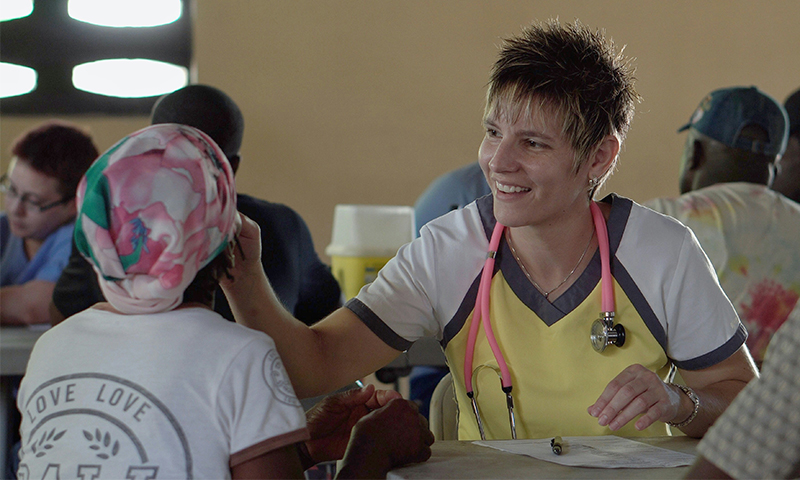Health Screenings and Checkups in Australia: A Lifesaver’s Guide
When it comes to the concept of screening and examination, generally it may sound slightly overwhelming, but like a practice of regular or annual dental visits, which is not limited to the elderly or sick only. But here’s the thing—getting regular checkups is for everyone! Of course, whether your patient is in his or her twenties, fifties or sixties, it is all about prevention, early detection, and quality living. As well discussed in the past, in Australia we have a pragmatic health system that cares about this.
Allow me to explain it to you sequentially.
The Facts About Health Screenings and Checkups
Picture this: You are out there living your life, you are even healthy and hale but on the inside your body could be screaming. Okay, not to be overly dramatic, but that’s where screenings come in handy. These are checks that allow identifying any problems that might be indicative of a disease’s development or factors that are not evident at first glance.
It’s kind of like having a car service, you know, those people who wash and fix your car? You might not have any complaints about your car, but the regular services help to check such say, ‘problems’ that might be with your car so that they do not turn out to be major ones and therefore expensive. Health screenings do the same to your body.
A lot of different screenings are available in Australia to ensure that everything stays on track — from your heart to cancer. Arizona is if you need certain medications at some point in life, or if you suffer from a particular disease.
Screenings That Are Available in Australia.
Okay, then, what does it entail to get routine examinations? Here’s a list of some of the most common health screenings in Australia:
1. General Health Checkups
This is the big one. Most of us will have a GP, which is a general practitioner – the first port of call for most health complaints. Your GP will tell you when you should come for a screening test depending on your age, your activities, and a history of diseases in the family. These checkups typically cover things like:
Blood pressure: The important thing is hypertension may not present symptoms yet it is a huge threat to cardiac arrest and strokes.
Cholesterol: Bad cholesterol is dangerous, its high levels cause formation of fat deposits in the arteries, hence heart complications.
Blood sugar: This is useful for early diagnosis of the disease.
These are not sophisticated tests, sometimes it can just be as easy as having a vial of blood drawn or five minutes with the cuff placed around your arm. Easy peasy.
2. Cancer Screenings
Cancer screening in Australia is one of the most efficient in the developed states, its primary purpose is to detect specific forms of cancer in the early stages when the treatment is most effective. Some of the key screenings include:
Bowel Cancer Screening: This is a big one for people over 50. There is the National Bowel Cancer Screening Program conducted in Australia, they post free test kits to participants. You just send out a sample and they, for instance, check it for signs of early cancer. Even if it sounds somewhat creepy this is a matter of life and death!
Breast Cancer Screening: Breast Screen Australia offers free mammography to women between the ages of 50 and 74 years and they should have a mammogram every two years. It is a cause that is all about finding breast cancer in its earliest stage before the woman can feel a lump.
Cervical Cancer Screening: You might know it as the Pap smear, though that has been replaced by the cervical screening test that looks for HPV — human papillomavirus. These should be taken by women aged 25 to 74 every five years. The good news is that it is more accurate and conducted less often than the old Pap smears.
3. Heart Health Checkups
Professionally, our heart is kind of a big deal, is it not? Cardiovascular disease is one of the biggest killers in Australia today, but the good news is that a large portion of these cases might be prevented. A high cardiovascular risk screening commonly consists of a cholesterol test, blood pressure exam, or additional tests according to one’s lifestyle (activity level, diet etc).
There is a Heart Health Check for those over 45 (for Aboriginal and Torres Strait Islander peoples, this age is 30). It pinpoints out that a 20-minute personal consultation with your general practitioner can reveal your five-year risk of a heart attack or stroke. If you’re at risk, your GP can assist you to do something about it through medication, diet, or social changes.
4. Diabetes Screening
Diabetes is something that can develop with little indication and this is where screening comes in. A screening test that will show whether you are pre-diabetic involves a simple blood test, and this is the more reason why when one is a victim of heredity coupling or is a little overweight, they must take a blood test to check whether they have type 2 diabetes. The general practitioners recommend people over 40 should go for cholesterol testing and people who have certain risk factors at a younger age.
5. Bone density test (for osteoporosis).
Osteoporosis is a disease which makes your bones brittle and vulnerable to fracture. It’s usually referred to as a “hidden” disease because you are not able to know that your bones are gradually becoming frail. It is advised that all women over 50 in Australia get their bone density checked and those with other risk factors such as a history of breast cancer in the family or early menopause should also go for the check-up. It is very simple and does not cause any discomfort in the slightest it uses what is referred to as a bone density scan which is a low-dose X-ray.
6. Eye and Hearing Tests
People usually pay less attention to the health of their eyes or ears until they start causing a problem and early visits can prevent it. Down under, it is advised that everyone should undertake an eye test every two years. Medicare often pays for these, so you’ll be all good.
Regarding hearing, one should note that regular tests are needed even with each passing year. If you are having any difficulty perhaps following conversations in noisy environments, then it is wise to visit an audiologist. They can give you a quick bout of examination and tell you whether you require another appointment.
How to Access Screenings
Now that you know what screenings are available, the next question is: how do you get them?
The good news therefore is that in Australia the system is relatively clear. For most screening, your first port of call will be your GP. They will discuss your risk factors such as your age, family history, and lifestyle or they will help you get to the right tests. Anywhere from straightforward clinics like having your blood pressure or cholesterol checked on-site to more complicated appointments like a mammogram or colonoscopy may be needed on site, or the patient may need to go to a specialist.
The best part? Fortunately, most screening tests are paid by Medicare so you shall not be fooled to fork out a lot of money to get screened. For instance, mammograms, cervical cancer screening, and bowel cancer tests are normally available free through national programs.
Considerations for Aboriginal and Torres Strait Islanders
Australia’s health screening policies are sensitive to Aboriginal and Torres Strait Islander people due to higher disease prevalence, particularly of cardiovascular disease and diabetes, among these persons. That is why health checks are recommended for 30 years instead of 45 years for heart disease. However, there are culturally specific health services also that cater to the specific needs of these communities.
When Should You Start?
Another challenge that often faces health screening plans is having a clue on when to commence. There is no general rule on this issue. They include your age, heredity, and your way of life. But here’s a quick guide:
20s and 30s: This is when you are setting the pattern for health throughout one’s entire life. In your 20s, it’s still more about getting a regular appointment with your GP and monitoring things like pressure, cholesterol and sexual health checks. And from the 30s one should be checking skin – especially if you live in sunny Australia – and start looking at your heart health.
40s and 50s: Being in your 40s, preventive health care examinations are even more crucial. This is even when many people go for screening for diabetes, and this is even when breast cancer screening for women starts. In your 50s bowel cancer screening kicks in and depending on family history or other predisposing factors; bone density ought to be considered.
60s and beyond: When you are in your 60s, the need for screenings should become part of your normal schedule. People pay more attention to their heart health, and it is also a good time to check other aspects such as hearing or eyesight.
How to Make It More of a Habit
Here’s the thing: none of these checkup procedures take time very much, but they may be of great value to your health. That’s all there is to it, incorporating them into your daily schedule, just as you would with a dental visit or taking your car in for servicing. And once you get to it, it becomes even simpler. Your GP will generally help you to remember the next date when you need to come for a checkup or screening while national programs (for instance the bowel cancer test) will send you a reminder in post.
Quite simply, health screenings and checkups are about helping put your mind at ease. I mean, just knowing that you have no health problems, or that the ones you have aren’t as bad as they could be, is such a relief. And in Australia especially when almost everything is at your fingertips, there is always no excuse not to go for it.
So, what do you think? Ready to book that checkup? If there’s one thing you could do for yourself this year, it might just be this.












